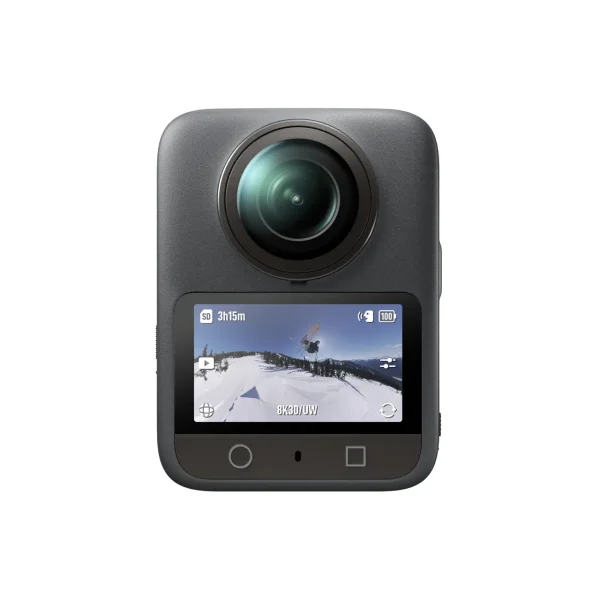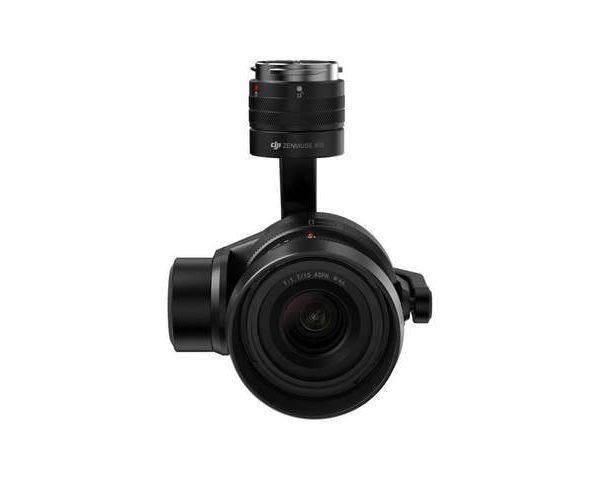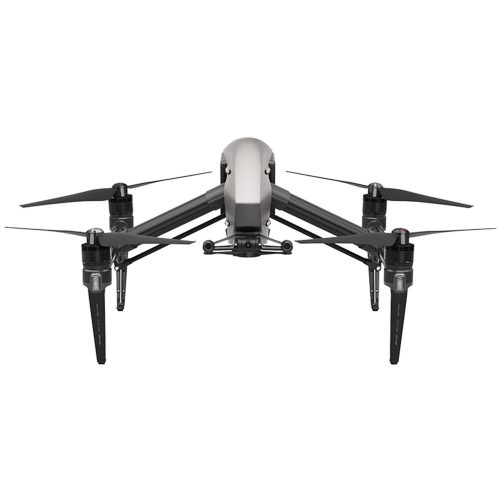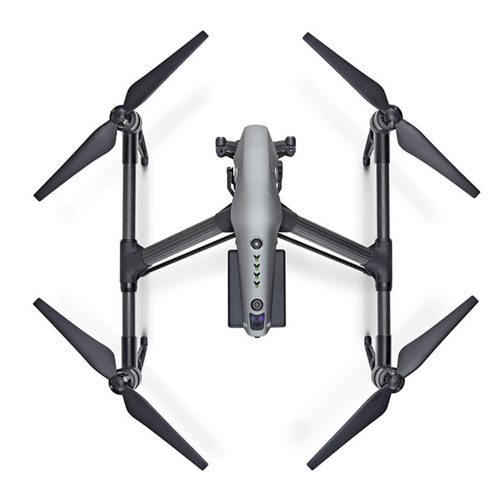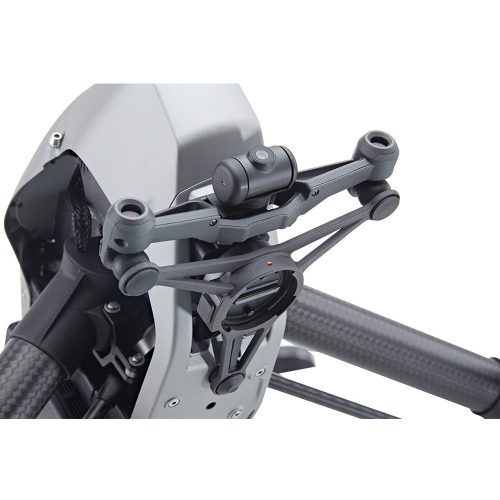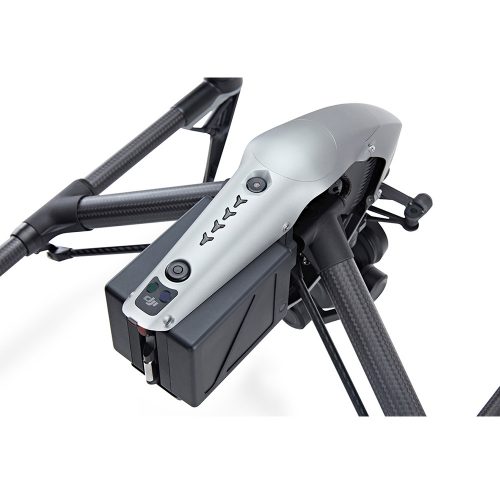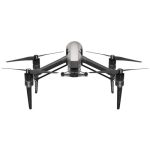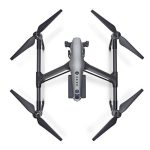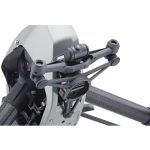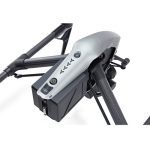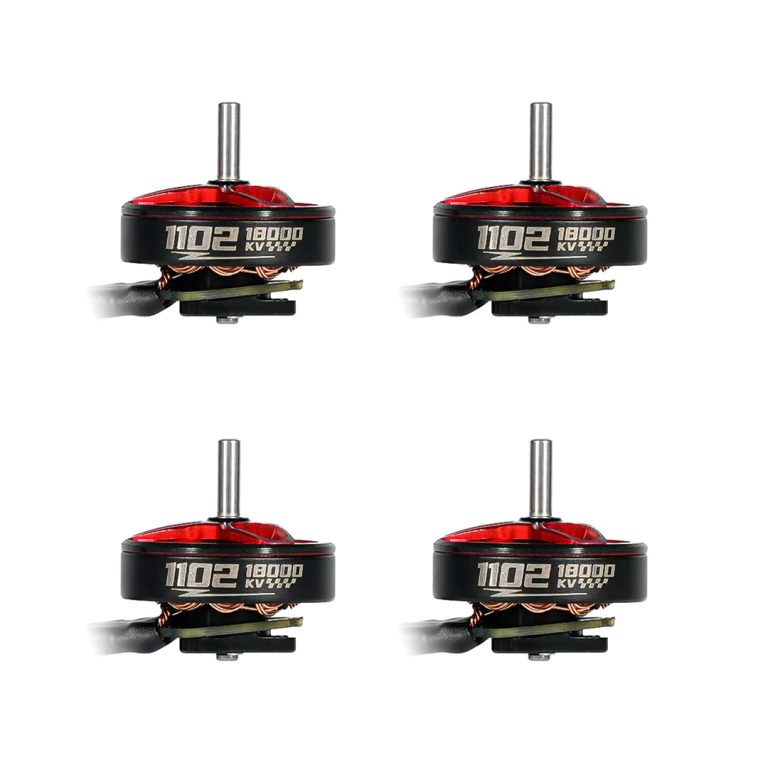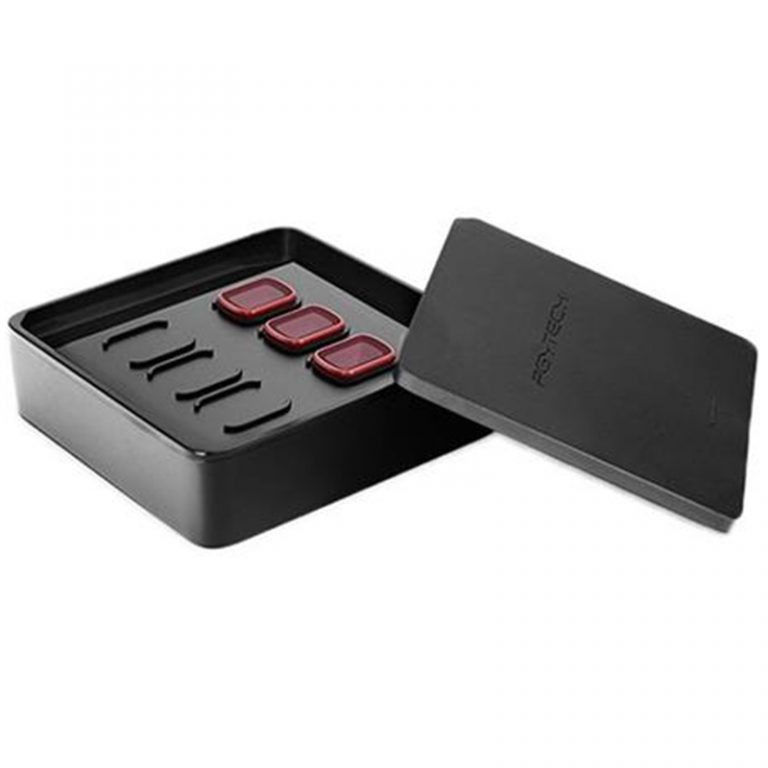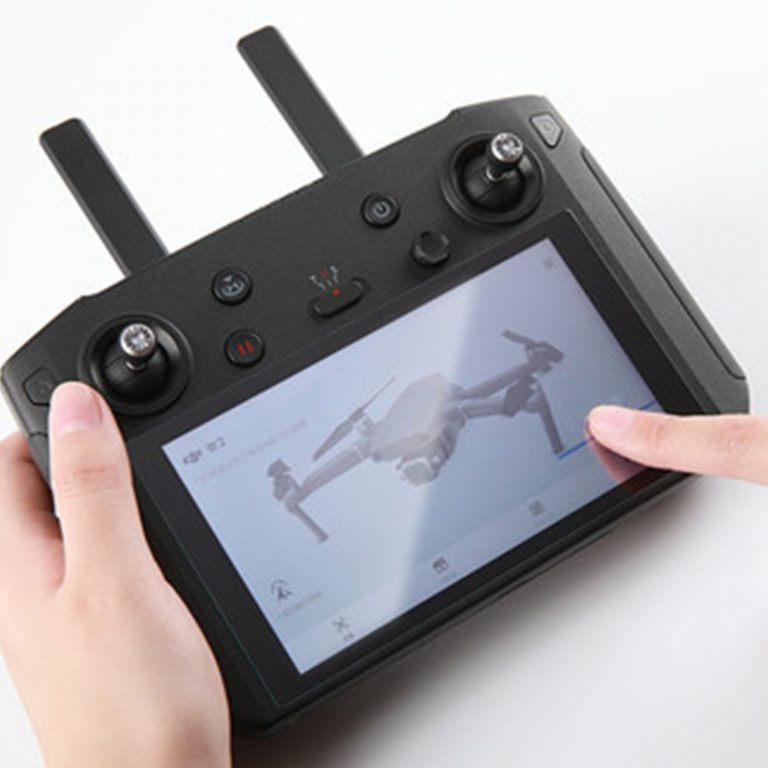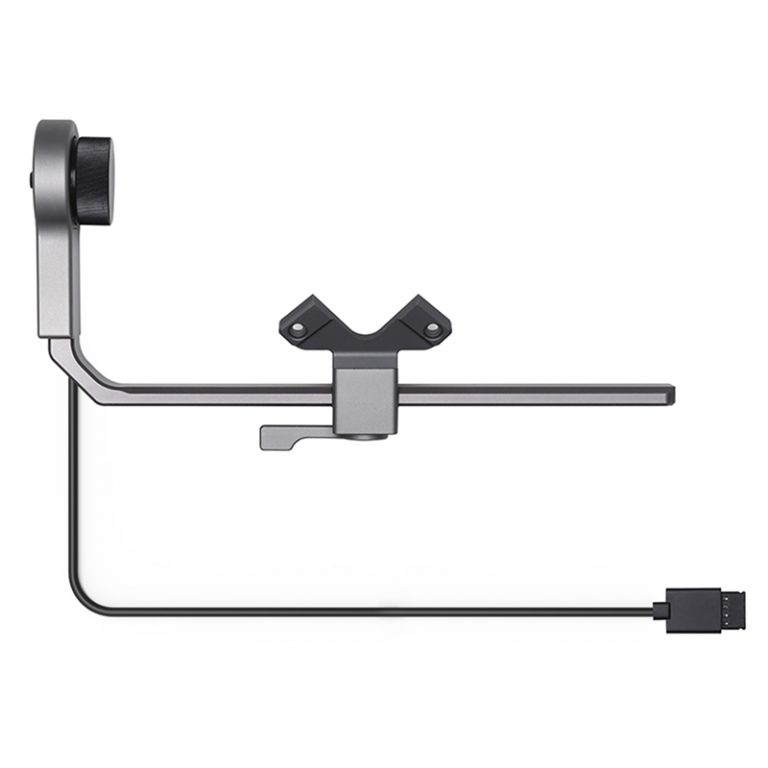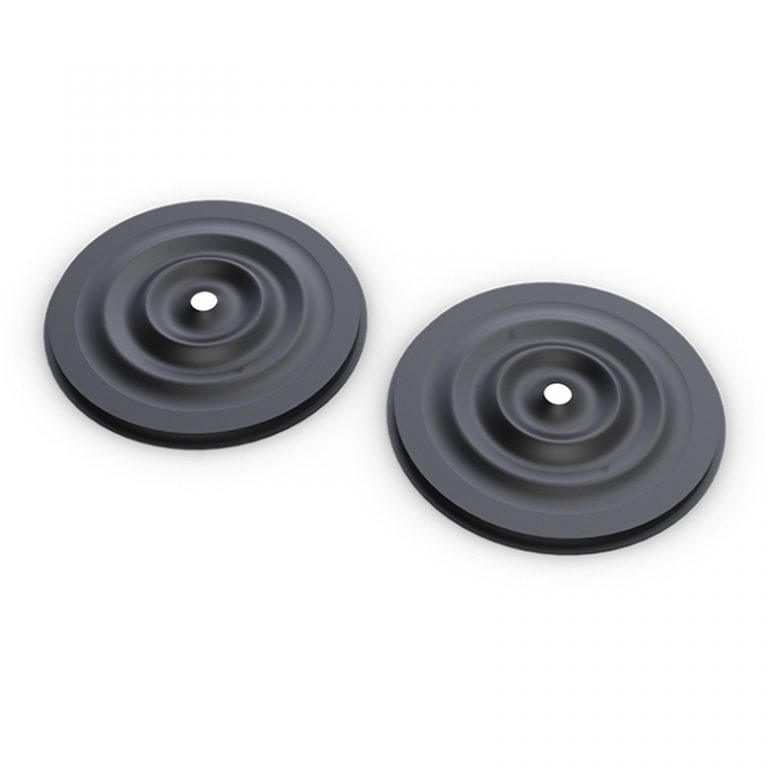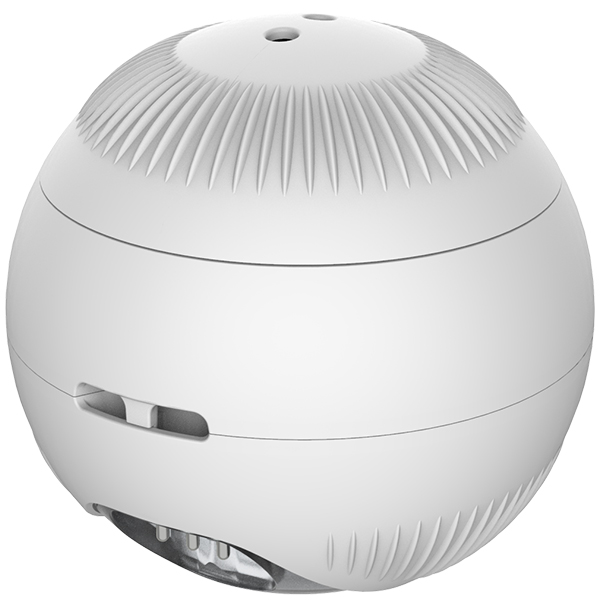The Inspire 1 was a revelation. The first filmmaking drone in the world to integrate an HD video transmission system, 360° rotating gimbal and a 4K camera,as well as the simplicity of app control. The launches of the Zenmuse X5 and X5R cameras further cemented the Inspire as a critical tool for filmmakers around the globe.
The Inspire 2 takes everything that was good about the Inspire 1 and improves it. An all-new image processing system records at up to 5.2K in CinemaDNG RAW,Apple ProRes and more. It goes from 0 to 50mph (80kph) in just 5 seconds and hits a maximum speed of 58mph (94kph) and has a max descentspeed of 9m/s for unheard of speed and agility in an aircraft this size. A dual battery system prolongs the flight time to a maximum of 27 minutes (with an X4S),while self-heating technology allows it to fly even in low temperatures. FlightAutonomy has been revised and developed specifically for the Inspire 2,providing two directions of obstacle avoidance and sensor redundancy. Increased intelligence adds multiple intelligent flight modes, including Spotlight Pro, giving even singlepilots the ability to create complex, dramatic shots. An upgraded video transmission system is now capable of dual signal frequency and dual channel, streaming video froman onboard FPV camera and the main camera simultaneously, for better pilot and camera operator collaboration.
PROFESSIONAL IMAGE QUALITY
Integrated into the Inspire 2 is the brand new CineCore 2.0 image processing system, capable of recording 5.2K videos in CinemaDNG*1, Apple ProRes*2 and more. CineCore 2.0 is built into the aircraft nose and works with any camera connected through the dedicated gimbal port.(Currently compatible with X4S*3 and X5S).
EFFICIENT WORKFLOW
The Inspire 2 creative workflow has been completely optimized and is now capable of recording videoin CinemaDNG and Apple ProRes, and other common formats for post-production in filmmaking. Also supported are FAT32/exFAT* file systems,which allow fast copying of files direct from the CINESSD without additional software.
SENSE AND AVOID
Forward and downward vision systems enable the Inspire 2 to detect obstacles up to 30 meters ahead, allowing for protected flight at up to 34mph (54kph)at a controllable attitude angle of 25°. Upward facing infrared sensors scan obstacles 16ft (5m) above, adding protection when flying in enclosed spaces.Obstacle sensing systems are active during normal flight, RTH and all Intelligent Flight Modes
SPOTLIGHT PRO
Spotlight Pro is a powerful tracking mode that allows even single pilots to capture complex, dramatic images. It uses advanced visual tracking algorithms to lock onto a subject during flight,regardless of the direction that the Inspire 2 flies, creating shots that would once have required a dedicated camera operator. If the gimbal comes close to reaching its rotation limits,the Inspire 2 itself will rotate in the same direction without affecting flight control or the shot being captured to free up gimbal movement.
It has two shooting modes, Quick Mode and Composition Mode. In Quick Mode, select an object to begin tracking. In Composition Mode, select the subject and the tracking position.When the subject enters the preset tracking position, press the shortcut to begin tracking. The gimbal can be moved during shooting for composition adjustments.Spotlight Pro is available in all Intelligent Flight Modes including ActiveTrack, TapFly, Waypoint and Point of Interest.
INTELLIGENT FLIGHT MODES
In addition to Spotlight Pro, a range of other intelligent flight and shooting modes are available. Obstacle avoidance is optimized when using Point of Interest*and Waypoint* modes, making complex shots simple and repeatable. Also available are QuickSpin, TapFly and ActiveTrack, to simplify challenging shots.
SMART RETURN TO HOME
Forward and downward vision systems allow the Inspire 2 to createa real-time map of its flight route as it flies. If the video transmission system signal is lost and Smart Return Home is enabled, it is able to fly home along its original route, and change to a straight line when it regains a signal. As it returns, it will use the primary camera to identify obstacles as far as 200m in front, allowing it to plan a safe route home. It is also able to reconnect more quickly after losing connection.
VIDEO TRANSMISSION SYSTEM
The latest update to DJI Lightbridge technology has an effective transmissiondistance of up to 4.3mi (7km)* and is capable of delivering both 1080p/720pvideo as well as the FPV view to pilot and camera operator. Users can alsoswitch between 2.4GHz and 5.8GHz** control frequencies to cut throughnoise for greater signal stability.
Master and Slave Controllers
A new wireless HD image transmission technology sends video information fromthe master controller to the slave controller and the two controllers can be up to100m apart without loss of image quality.
Broadcast mode
Broadcasters can broadcast direct from the Inspire 2 using its dedicated 1080i50and 720p60 transmission signal. Aerial live-streaming direct to TV is as simple asconnecting the Inspire 2 remote controller to the satellite truck.
*Unobstructed, free of interference, FCC compliant.
**5.8GHz transmission is not available in some regions due to local regulations.
POWERFUL FLIGHT PERFORMANCE
A new propulsion system optimized for power creates a new level of flight performance. The Inspire 2 flies at up to 58mph (94kph) descends at 9m/s andclimbs at 6m/s. It can accelerate from 0 to 50mph (80kph) in just 5 seconds and flies at a max attitude angle of 40°. The two controller sticks are tuned for moresensitivity, making delicate maneuvers easier.
More power also allows the Inspire 2 to fly in more extreme conditions, including over 2500-5000m above sea level (using optional dedicated propellers),and in temperatures as low as -4°F (-20°C) using self-heating Intelligent Flight Batteries.
INCREASED RELIABILITY
Reliability has been further enhanced through dual redundancy of key modules such as the IMU and barometer. The intelligent flight control system monitors the redundancy system, giving it accurate flight data.
The new obstacle sensing system helps the Inspire 2 sense and avoid obstacles, minimizing the risk of collision.
Dual batteries mean that if a problem occurs on one battery the other is able to continue flight long enough for a safe landing. At the same time, the Inspire 2 propulsion system is driven a PWM signal with serial port signal redundancy so that if PWM signals are lost, transmission will continue through the serial port.
This propulsion system has been tested for thousands of hours to ensure reliability, when combined with key sensors and a dual-battery design, overall flight reliability is significantly enhanced.
Courier delivery
 DHL Courier delivery
DHL Courier delivery

